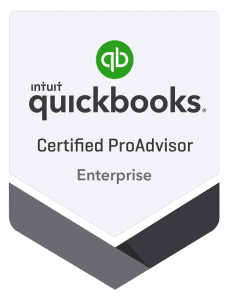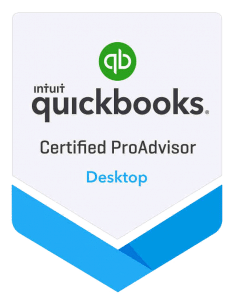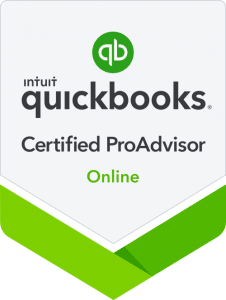Handling sales tax might not be the most exciting part of running a business, but it’s one of those things that you just can’t afford to get wrong. Whether you operate online or have a physical storefront, the way you file and report your sales taxes can have a big impact on your peace of mind. If you’ve ever felt confused during tax season or found yourself scrambling for the right documents, you’re not alone. Sales tax reporting brings its fair share of confusion and headaches, especially when time is limited and the rules feel like they change overnight.
Many small business owners try their best to stay organized, only to find out later that something’s out of place. Maybe a receipt went missing, or tax rates were applied incorrectly. That tiny mistake can take hours to fix and sometimes even draw attention from state tax agencies. While sales tax reporting can be frustrating, the good news is that once you understand the process better and know what to look out for, managing it becomes a lot more doable.
Understanding The Basics Of Sales Tax Reporting
Before you can make sense of the issues with sales tax reporting, it helps to understand what it actually involves. At its core, sales tax is the amount you collect from customers when they buy goods or services, and it gets paid to the state or local tax agency. As a business owner, you’re expected to calculate it accurately, collect it properly, and file reports within a specific schedule, usually monthly, quarterly, or annually, depending on your sales volume and the rules in your state.
The first step is knowing whether your business even needs to collect sales tax. If you sell taxable goods or services, you probably do. But it can get tricky if you sell in multiple areas, each with its own rates and categories. Even digital services and products sometimes count. So, it’s not always a one-size-fits-all deal. Once you figure out how much tax to collect, you’ll need to fill out tax returns showing the total amount collected, based on your actual sales. It sounds simple, but the details can sneak up on you.
One small business owner might sell handmade products at local events and online, across various states. Each state might have its own deadline, tax rate, and forms. Keeping up with those differences takes tools, attention, or both. It’s not just about being good at math. It’s also about staying on top of what the rules even are in each place where you do business. Once you understand what goes into reporting, it’s easier to see where things can go wrong.
Common Challenges In Sales Tax Reporting
Even if you’ve got a basic understanding of how sales tax works, the actual hands-on process often brings up roadblocks. These challenges can cause delays, errors, and a lot of extra hassle if they’re not managed well.
Here are some of the most common problems business owners run into:
1. Different tax rates across jurisdictions
Selling to customers in different regions often means juggling several tax rates at once. One city may charge local sales tax while another does not. Keeping track of these differences manually can easily lead to errors.
2. Unclear product categories
Some products are fully taxable while others may be partially taxed or exempt altogether. Deciding where your product fits isn’t always intuitive, and classifying something the wrong way can throw off your numbers.
3. Missed deadlines
Each state assigns a deadline based on how often you need to file. Forgetting or misreading your filing schedule can result in fines or other expensive consequences.
4. Inconsistent recordkeeping
Without clear, organized records of your transactions, reporting becomes a guessing game. Missing receipts, untracked returns, and cash sales that didn’t get logged all cause issues later.
5. Too much manual input
Relying on handwritten logs or DIY spreadsheets almost always leads to overlooked figures. A misplaced decimal or forgotten transaction can result in underreporting or overreporting your taxes.
Recognizing these common pain points is the first step to fixing them. Most of these problems are completely avoidable once you apply a more structured way of handling your tax data.
Strategies To Simplify Sales Tax Reporting
Dealing with sales tax doesn’t have to make your head spin. There are straightforward strategies to help smooth out the process. Staying organized tops the list. Start by categorizing your receipts and keeping them all in one place. A simple file system can do wonders for finding what you need quickly. Keep digital copies as backups too. This way, if you ever need to go back and check something, everything is right where it should be.
The right tools can also make a major difference. Accounting software that includes sales tax tracking minimizes errors and frees up your time. Programs with automatic updates for tax rates save you from keeping pace with every change. Many of these tools allow you to set rules for different tax rates, so they’re applied automatically when you make a sale in a new location.
If the maze of regulations and rates feels too complex, you don’t need to handle everything alone. Getting professional help for complex tax matters can save you a lot of time and worry. Experts know the legal ins and outs, making sure you meet all obligations. It’s one less thing for you to stress about, freeing you up to concentrate on running your business.
Importance Of Staying Compliant
Staying on top of sales tax obligations isn’t just about dodging fines. Compliance helps you avoid mistakes that lead to huge problems later. The cost of falling behind or getting something wrong can add up fast. Overlooked issues can lead to audits or penalties that take a toll on your profits. Keeping accurate and up-to-date records is the best way to avoid these problems.
Making sure your records are accurate also boosts how your business is viewed. Consistent, error-free filings show customers and partners that you’re dependable and serious about doing things right. No one wants to work with a business that cuts corners or runs into problems with tax agencies. Paying close attention to detail is part of being seen as professional and trustworthy.
One practical tip is to schedule regular reviews of your sales records and tax filings. Checking things each quarter helps catch small oversights before they lead to bigger issues. Add a recurring reminder on your phone or calendar. This makes it easier to stay organized and avoid surprises down the line.
Making Sales Tax Reporting Easier With Cloud Bookkeeping
Helping small business owners stay on track with their tax responsibilities is what we do. Cloud Bookkeeping has worked with all kinds of businesses, from online sellers to local shops, to handle their sales tax reporting with accuracy and ease. Whether it’s figuring out where you’re required to collect sales tax or staying on schedule with your filings across different states, we’ve got the experience to help.
Sales tax doesn’t have to control your time or energy. We use tools that automatically calculate the correct rates, pull your sales data together, and generate timely reports that help keep things moving. If sales across multiple jurisdictions are giving you trouble, we’re here to walk you through it and offer reliable solutions that fit your business.
We believe that professional support is the smartest way to handle complicated tax situations, especially when growth adds layers you weren’t expecting. Let us help simplify the process so you can get back to focusing on the parts of your business you truly enjoy.
Ready To Simplify Your Sales Tax Reporting?
You’ve already got enough on your plate running your business. Sales tax reporting doesn’t have to be another source of stress. The good news is that you don’t have to go through it alone. When you work with professionals who understand how reporting works across different locations and industries, it takes the guesswork out of it.
Cloud Bookkeeping offers a dependable way to handle your sales tax tasks from start to finish. From using the right systems to making sure you’re staying compliant, we’re here to help small business owners feel confident about their numbers. Let’s make sales tax reporting one less thing to worry about. Your time is valuable, and your business deserves a solid process that supports growth.
Sales tax reporting doesn’t have to be a headache. If you’re looking for a smoother, less stressful way to handle it, professional support can make a big difference. Trust Cloud Bookkeeping to walk you through the details and help you stay on track. Learn how we can assist with sales tax reporting so you can focus more on running your business and less on compliance stress.






